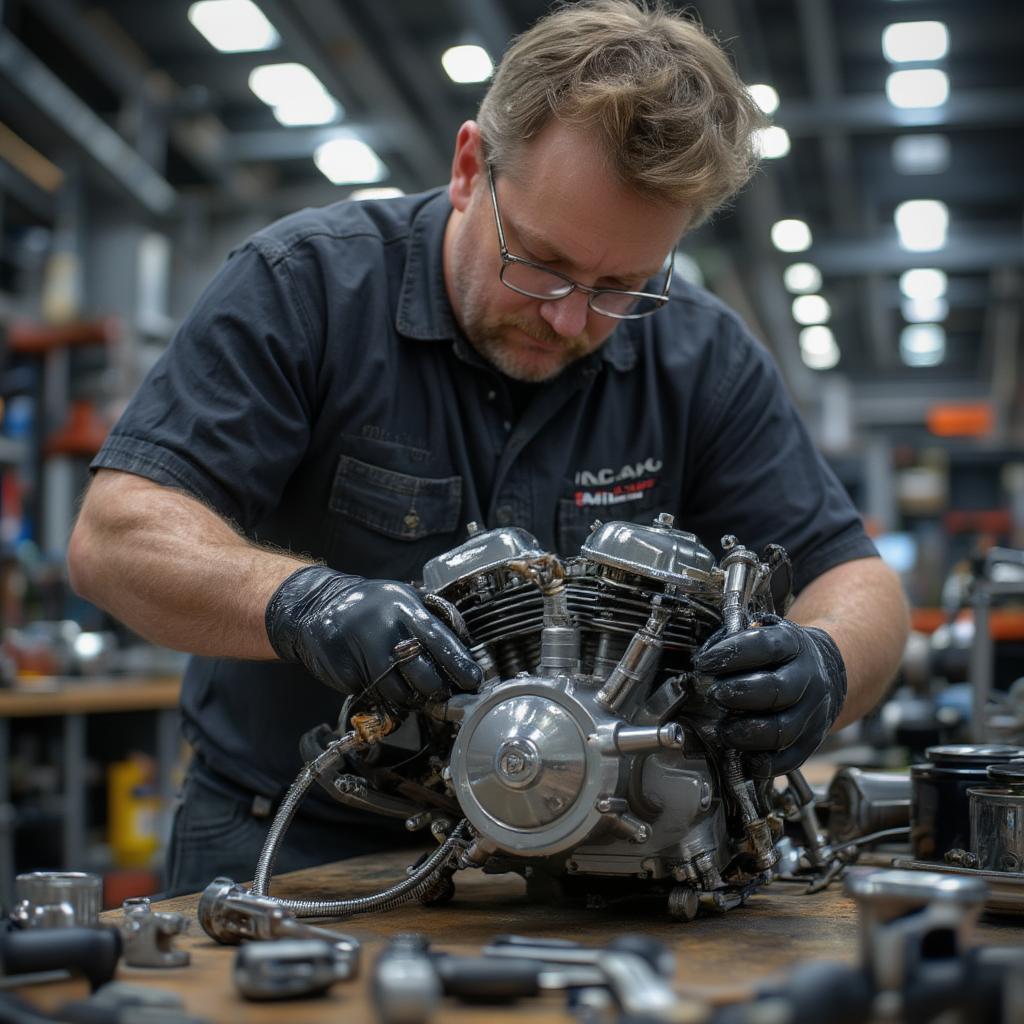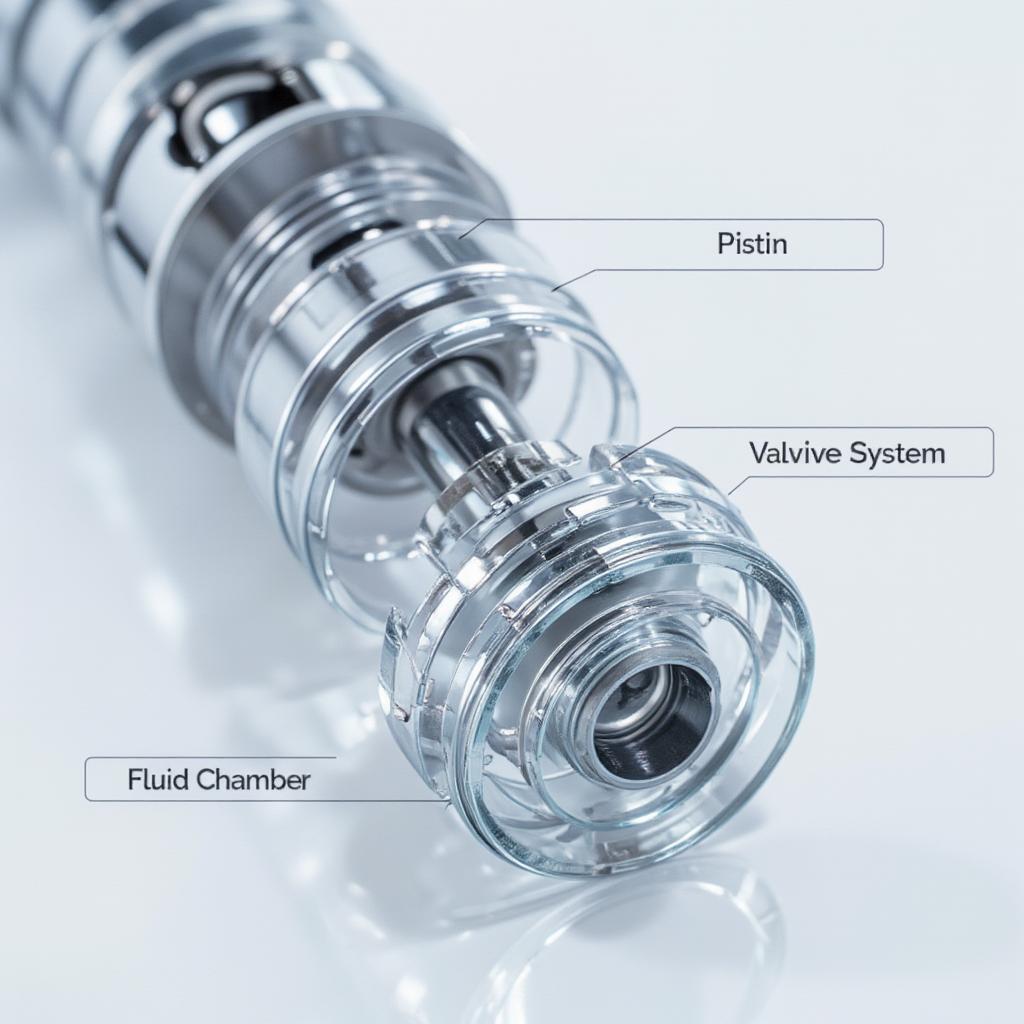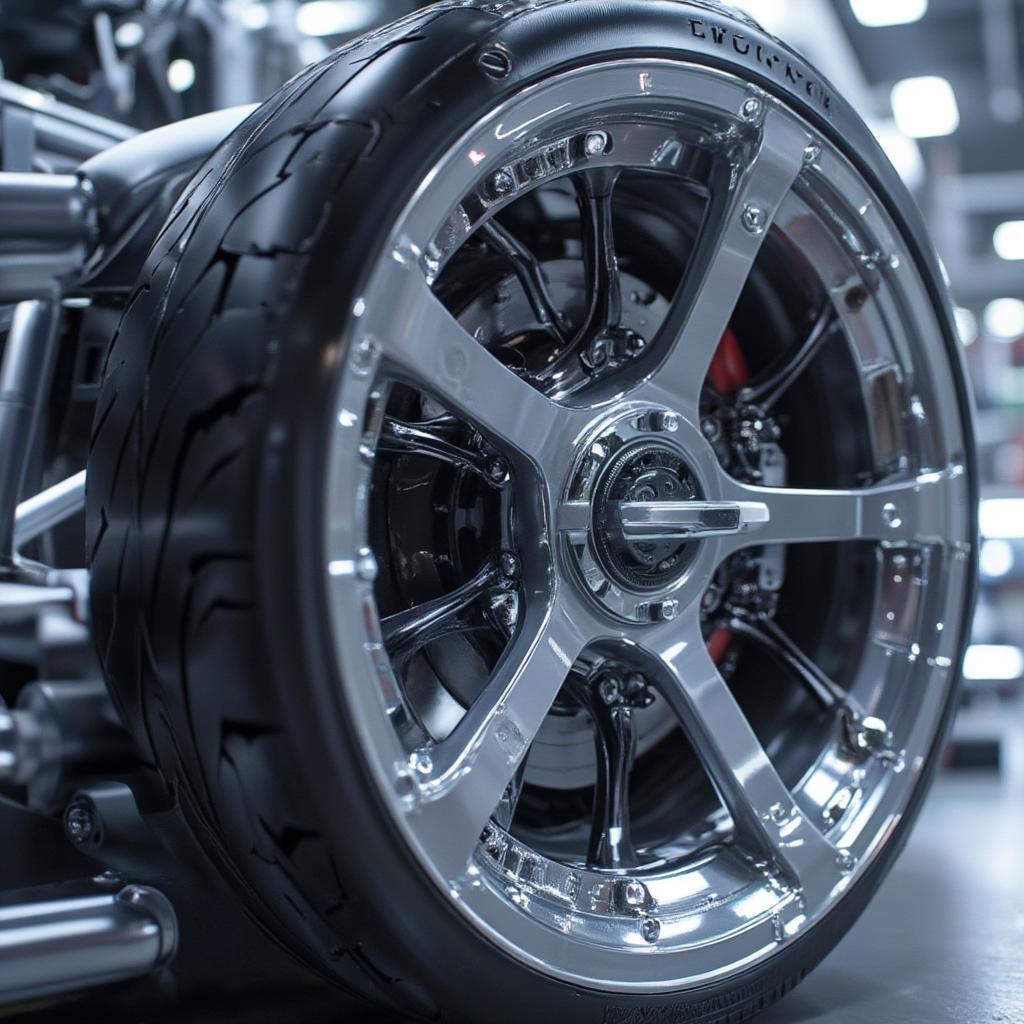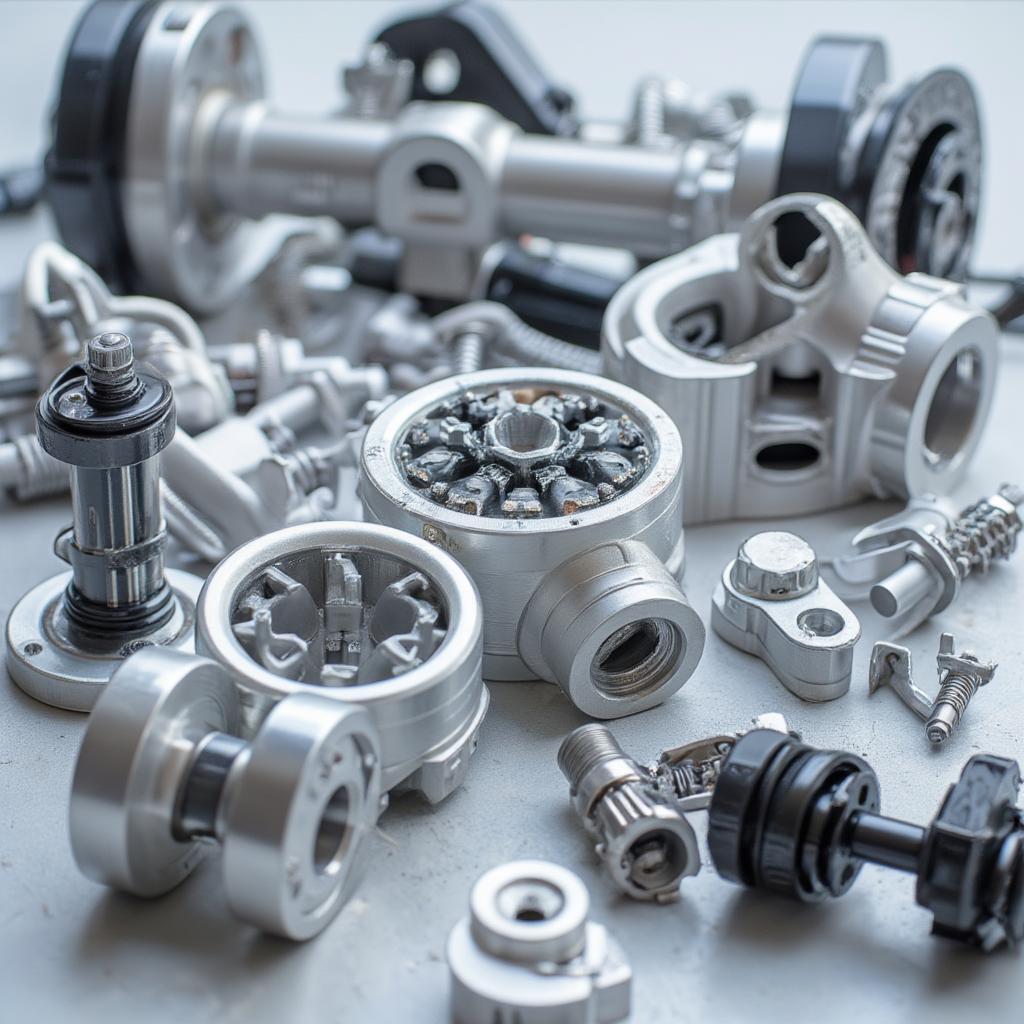Jumpstart Your Career with a Small Motor Mechanic Course

A Small Motor Mechanic Course can be your gateway to a rewarding career in various industries. From outdoor power equipment to motorcycles and marine engines, this hands-on training provides the foundational knowledge and skills necessary to diagnose, repair, and maintain small engines. This article will explore the benefits of taking a small motor mechanic course, the career opportunities it unlocks, and what you can expect from the training.
Why Choose a Small Motor Mechanic Course?
Choosing a career path is a significant decision. A small motor mechanic course offers several compelling reasons to consider it:
- High Demand: Skilled small engine mechanics are always in demand. Industries reliant on small engines, such as landscaping, construction, and recreation, consistently need qualified professionals to keep their equipment running smoothly.
- Practical Skills: This course emphasizes hands-on learning, allowing you to gain practical experience in troubleshooting, repairing, and maintaining various types of small engines.
- Career Versatility: With the skills acquired, you can work in diverse settings, including repair shops, dealerships, rental companies, and even start your own business.
- Job Satisfaction: Many find satisfaction in the hands-on nature of the work and the ability to solve mechanical problems. The tangible results of your labor can be incredibly rewarding.
- Evolving Technology: The small engine industry is constantly evolving, incorporating new technologies like fuel injection and electronic controls. A good course will keep you updated on these advancements.
What to Expect in a Small Motor Mechanic Course: Your Comprehensive Guide
A typical small motor mechanic course covers a wide range of topics designed to equip you with a comprehensive understanding of small engine mechanics. Curriculum variations exist depending on the institution and specific program, but generally, you can anticipate exposure to the following core areas:
Fundamental Engine Principles
- Two-stroke and four-stroke engine operation: Learn the intricacies of how these common engine types function, their differences, and unique maintenance requirements.
- Engine components and systems: Gain a deep understanding of various engine parts, including carburetors, fuel systems, ignition systems, lubrication systems, and cooling systems. You’ll learn how each system contributes to the overall performance and reliability of the engine.
- Basic electricity and electronics: Develop a foundational knowledge of electrical principles and their application in small engine systems, including understanding wiring diagrams, troubleshooting electrical faults, and working with electronic components.
Hands-on Diagnostic and Repair Techniques
- Troubleshooting procedures: Master the art of systematically diagnosing engine problems using various tools and techniques, including visual inspection, listening for unusual sounds, and utilizing specialized diagnostic equipment.
- Disassembly and reassembly of engines: Get hands-on experience taking apart and putting back together different types of small engines, developing a thorough understanding of their internal workings.
- Preventive maintenance procedures: Learn the importance of regular maintenance and how to perform routine tasks such as oil changes, filter replacements, spark plug inspections, and other preventative measures to extend engine life.
Specialized Equipment and Tools
- Using specialized tools and equipment: Familiarize yourself with the tools of the trade, from basic hand tools to specialized diagnostic equipment used in modern small engine repair. Learn how to use each tool effectively and safely.
- Safety procedures and practices: Understand and implement essential safety protocols to ensure a safe working environment while handling tools, equipment, and hazardous materials commonly found in a small engine repair setting.
Career Paths After Completing a Small Motor Mechanic Course
Graduating from a small motor mechanic course opens doors to a variety of career paths:
- Small Engine Mechanic: Work in repair shops, specializing in fixing lawnmowers, chainsaws, generators, and other outdoor power equipment.
- Motorcycle Mechanic: Focus on the maintenance and repair of motorcycles, scooters, and other recreational vehicles.
- Marine Technician: Specialize in repairing and maintaining boat engines and other marine equipment.
- Outdoor Power Equipment Technician: Work for landscaping companies, golf courses, or resorts, maintaining their fleet of small engine equipment.
- Small Engine Sales and Service: Combine mechanical skills with customer service in a sales or service role at a dealership.
Choosing the Right Small Motor Mechanic Course
When selecting a program, consider factors like:
- Accreditation: Ensure the program is accredited by a recognized organization.
- Curriculum: Verify the curriculum covers the latest technologies and industry standards.
- Hands-on Training: Look for programs with a strong emphasis on practical experience.
- Instructor Qualifications: Research the experience and qualifications of the instructors.
- Job Placement Assistance: Inquire about career services and job placement support.
“The hands-on experience you gain in a small motor mechanic course is invaluable. Employers are looking for graduates who can hit the ground running and apply their skills immediately.” – John Miller, Senior Technician, Miller’s Small Engine Repair
“The small engine industry is constantly evolving. A good course will not only teach you the fundamentals but also expose you to the latest technologies and trends.” – Sarah Chen, Lead Instructor, City Technical College

Conclusion
A small motor mechanic course provides a solid foundation for a rewarding career in a growing field. By gaining practical skills and knowledge, you’ll be well-prepared to meet the demands of various industries reliant on small engines. This training empowers you with the expertise to diagnose, repair, and maintain a wide range of equipment, leading to diverse and fulfilling career opportunities. Consider enrolling in a small motor mechanic course today to jumpstart your future.
Frequently Asked Questions (FAQ)
-
What is the average duration of a small motor mechanic course? Programs typically range from several weeks to a year, depending on the depth of coverage.
-
Are there any prerequisites for enrolling in a small motor mechanic course? Generally, a high school diploma or equivalent is sufficient. Some programs may require basic mechanical aptitude.
-
What are the job prospects for small motor mechanics? The job outlook is positive, with a consistent demand for skilled technicians across various industries.
-
What is the average salary for a small motor mechanic? Salaries vary based on experience, location, and employer but are generally competitive within the skilled trades sector.
-
What types of certifications can I obtain after completing the course? Various industry certifications are available, enhancing your credentials and employability.
-
Is financial aid available for small motor mechanic courses? Many institutions offer financial aid options, including scholarships, grants, and loans.
-
Can I start my own business after completing a small motor mechanic course? Yes, many graduates successfully launch their own repair businesses or mobile service operations.
-
What are some common tools used by small motor mechanics? Common tools include wrenches, screwdrivers, pliers, multimeters, compression testers, and specialized diagnostic software.
-
Are there online small motor mechanic courses available? Yes, some institutions offer online or hybrid programs that combine online learning with hands-on practical training.




